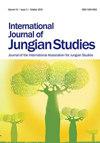本体论相对性检验
Q4 Psychology
引用次数: 0
摘要
荣格认为自然科学方法在分析心理学中的作用,以及其他发展知识的方法。本文运用波普尔科学哲学的原理,对《心理类型》中一个神秘而未发展的概念进行了检验。这个观点是荣格哲学的结合,本质在阿尼玛,和他的对立理论应用于政治。它是用哲学家奎因创造的一个术语来解释的——本体论相对论。由于荣格和奎因在威廉·詹姆斯的激进经验主义中有着共同的影响,这两个哲学概念之间有着关键的相似之处。政治对立体的本体论相对性经历了三次试图证伪的考验,三次证伪的尝试都失败了,这为这一观点提供了一定的支持。然而,有许多异常结果提出了需要进一步研究的重大问题。因此,这篇论文应该被视为研究计划的第一步,以检验政治对立的本体论相对性,这是动物本质中固有的。本文章由计算机程序翻译,如有差异,请以英文原文为准。
A Test of Ontological Relativity
Jung saw a role for the methods of natural science in analytical psychology alongside other ways of developing of knowledge. This paper puts a cryptic and undeveloped idea in Psychological Types to the test using the principles of Karl Popper’s philosophy of science. The idea is a combination of Jung’s philosophy, esse in anima, and his theory of opposites applied to politics. It is explained using a term coined by the philosopher W.V.O Quine—ontological relativity. There are key similarities between the two philosophical concepts, due to Jung and Quine having a common influence in William James’ radical empiricism. The ontological relativity of political opposites is subjected to three tests that attempt to falsify it. All three attempts at falsification fail, which therefore provides some support for the idea. However, there are a number of anomalous results that raise significant questions requiring further research. This paper should therefore be viewed as the first step in a programme of research to examine the ontological relativity of political opposites that is inherent within esse in anima.
求助全文
通过发布文献求助,成功后即可免费获取论文全文。
去求助
来源期刊

International Journal of Jungian Studies
Psychology-Applied Psychology
CiteScore
1.10
自引率
0.00%
发文量
10
 求助内容:
求助内容: 应助结果提醒方式:
应助结果提醒方式:


